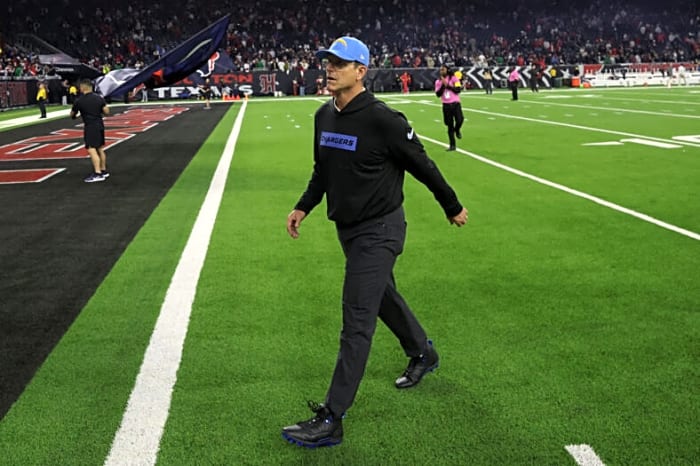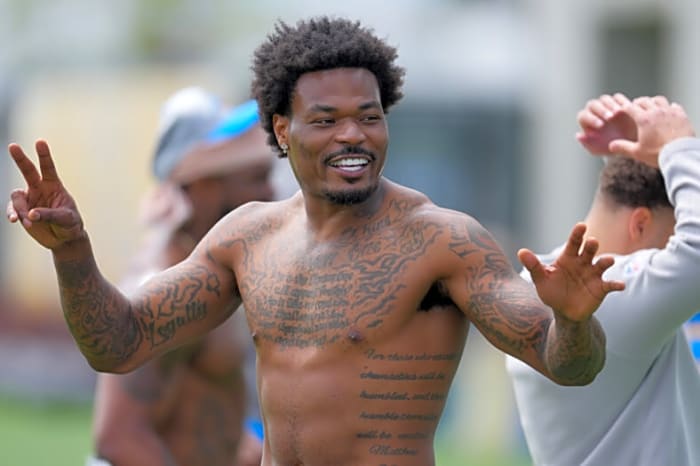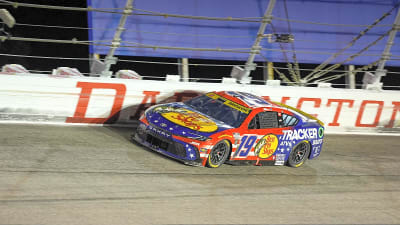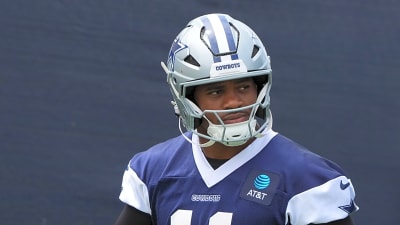
The Los Angeles Chargers haven’t quite escaped the long shadow of the Kansas City Chiefs. That’s true on the field, in the AFC standings, and in national conversations. But not everyone sees the gap as unbridgeable. NFL analyst Kevin Clark, on his This Is Football podcast, recently offered an eyebrow-raising assessment of the Chargers’ ceiling in 2025.
“That’s why there’s a ‘Chiefs Tier’—they’ve earned that,” Clark said. “But the Chargers? They’re going to win double-digit games and be firmly in the mix. I wouldn’t be shocked at all if they made the Super Bowl. I’m not predicting it… but that’s the kind of team we’re talking about. Give me half-credit if it happens.”
Clark’s take wasn’t a casual throwaway—it came as he broke down the AFC landscape, which has grown increasingly unpredictable behind the Chiefs. With the Ravens and Bills unable to get over the playoff hump, and question marks surrounding teams like Miami and Cincinnati, the Chargers have emerged as a legitimate dark horse. And Clark isn’t alone.
Don’t Be Shocked if the Chargers Make a Super Bowl Run — Kevin Clark Isn’t

Oddsmakers agree. As of now, the Chargers are listed at +2500 to win the Super Bowl. In other words: there are far riskier bets than pairing a proven head coach with a franchise quarterback. “Hey, you can do a lot worse than Harbaugh and Justin Herbert at +2500,” quipped betting expert Scott Engle.
Much of that optimism comes down to one man: Jim Harbaugh.
Now in his second season in Los Angeles, Harbaugh has begun molding the franchise in his own image—physical, focused, and built from the inside out. It’s the same blueprint he used to turn around Stanford, Michigan, and the San Francisco 49ers. The Chargers improved defensively, added key offensive weapons in the draft, and most importantly, started to build a cohesive culture.
Last year’s early excitement surrounding Harbaugh has faded—but not in a bad way. “I feel like last year kind of set the floor for this group,” said safety Derwin James Jr. “I feel like no one expected us to go that far… now we know what’s possible.”

The Chargers went 11–6 and made the playoffs before being humbled in a 32–12 loss to the Texans. That loss hurt—but it also galvanized the locker room. Now, the buzz has given way to belief.
Justin Herbert will be working with the same offensive coordinator, Greg Roman, for the first time in his career—a critical continuity for a quarterback who has played under four play-callers in five seasons. He’ll also have more help this time around.
Breakout rookie Ladd McConkey (1,149 yards, 82 catches) returns after shattering Chargers records, and veteran receiver Mike Williams is back in the fold after a year away. “You need a big-time play, Mike’s going to go up and make it,” Herbert said. “He’s that guy.”
The Chargers also made smart investments in young skill talent—drafting wideouts Tre’ Harris and KeAndre Lambert-Smith, plus tight end Oronde Gadsden II—adding firepower to an offense that was inconsistent outside of McConkey in 2024.
Defensively, rising linebacker Daiyan Henley is drawing All-Pro expectations after a breakout season with 147 tackles—despite playing through a torn labrum. “All-Pro,” said Derwin James without hesitation. “Not just Pro Bowl. All-Pro.”

Henley has spent the offseason training with James and Khalil Mack, who re-signed on a team-friendly $18 million deal despite offers elsewhere. Mack nearly retired after the Texans loss—but he returned for one reason.
The Chargers have the pieces. They have the coach. They have a quarterback who still hasn’t played his best football. And for the first time in years, they might also have the balance—between offense, defense, and culture—to finally meet their potential.
“Why not here, man?” Mack said. “Why not win it all?”
Clark isn’t handing them a Super Bowl ticket. But he sees what many are beginning to notice: this version of the Chargers looks different. If they break through, don’t say you weren’t warned. Just make sure Kevin Clark gets his half-credit.
More must-reads:
- Jaguars' unique plan for two-way rookie Travis Hunter is revealed
- Buccaneers sign key offensive lineman to a four-year extension
- The 'NFL sack leaders since 2021' quiz
Breaking News
Trending News
Customize Your Newsletter
 +
+
Get the latest news and rumors, customized to your favorite sports and teams. Emailed daily. Always free!








